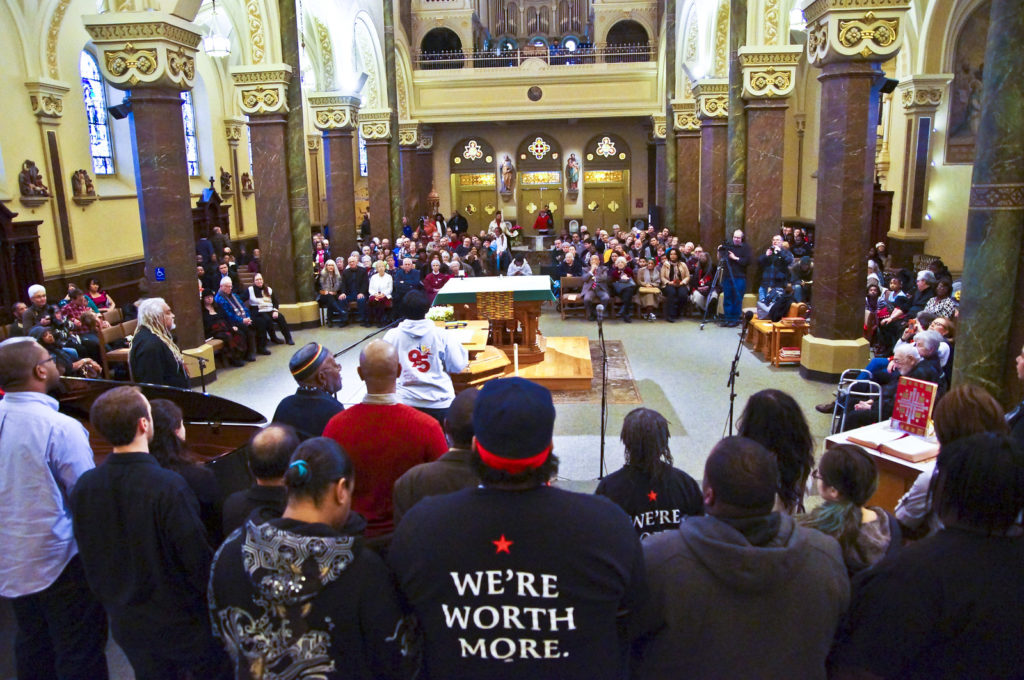Reporter Kallie Cox has sat through more school board meetings, city council meetings and community forums for the Southern Illinoisan and Daily Egyptian newspapers than she can count.
But the last time she attended a meeting in person was a year ago. At the forum, there was a whiteboard, and after the meeting was over, people exchanged business cards and telephone numbers. “We would be able to go up to the presenters and ask them questions and we’d be able to follow up with them and get information on background or off the record tips from the presenters or city council members who would see us as reporters and come up to us after meetings if something concerned them,” she said.
When COVID pushed meetings online, Cox said her reporting changed. “People are older and not used to the tech and have had broadband issues and there hasn’t even been video so it’s difficult to distinguish who’s speaking,” she said. “It’s almost like the city officials and the people in power are socially distancing from the people they’re supposed to serve.”
By law, government meetings in Illinois must be open to the public, with advance notice. Public bodies were allowed to move their meetings online during the height of the pandemic in 2020 through an exception to the state’s Open Meeting Act. The governor issued an executive order on Sept. 17 that extends the suspension of the open meetings requirements. It had been due to expire this summer.
“It seems like the governor keeps entering additional orders, and it keeps being pushed out,” said Josh Burday, a lawyer at Lovey & Lovey in Chicago, a civil rights firm that specializes in sunshine law violations, among other things.
When the exemption ultimately expires, reverting to pre-pandemic standards, a quorum of board members must be physically present to hold a public meeting. An absent board member would only be allowed to participate in the meeting virtually if sick, for employment purposes, or for a family or other emergency.
“The Open Meetings Act was amended to allow virtual meetings so long as the governor or department of public health has declared a public health emergency,” said Don Craven, chief executive of the Illinois Press Association and a longtime attorney for the group. He said the legal authority that grants this allows the head of the public body to determine that an in-person meeting or a meeting is not practical or prudent because of a disaster.
In Chicago, the school district–the third largest in the country, initially required that local school governing bodies move back in-person even as hundreds of children have been quarantined because of exposure to COVID-19. Community representatives pushed back, arguing that virtual meetings are more accessible to parents and community members. The school district later reversed its decision, allowing the meetings to be virtual. An upcoming finance committee meeting of the Chicago City Council will be virtual–as other committee meetings have been.
“The head of each public body makes the decision on whether the meeting is remote or in-person, so there is still some leeway for offering the public a virtual option,” said Ben Silver, community lawyer at the Citizens Advocacy Center of Illinois. ”The public body still has the option to hold remote, virtual meetings, but it is no longer a requirement.”
It is unclear what percentage of meetings are held virtually or in-person now. The Illinois Attorney General’s Public Access Counselor Office does not track the format of meetings.
Many reporters are looking forward to having meetings back in-person.
Members of the news media “have been complaining from Day One that meeting by Zoom really denies them the access to personal meetings that occur when they show up at a city council meeting,” Craven said. “The city council members can’t hang up and the reporters have opportunity for face to face discussions.”
Bill Mitchell, editor of the Cass County Star-Gazette in Beardstown in western Illinois has what he called an old-school preference for in-person meetings. “If everybody is there in one place, you can see people’s reactions,” he said. “People tend to be a little more open and you can read their faces a little better and you can get more insight into what people are thinking if you’re right there with them. It’s a little more sanitized if it’s on a screen.”
Elizabeth Tharakan is a PhD student at Southern Illinois University Carbondale, where she studies Mass Communication and Media Arts. She is also an attorney licensed in Missouri, Colorado, New York and the District of Columbia.


